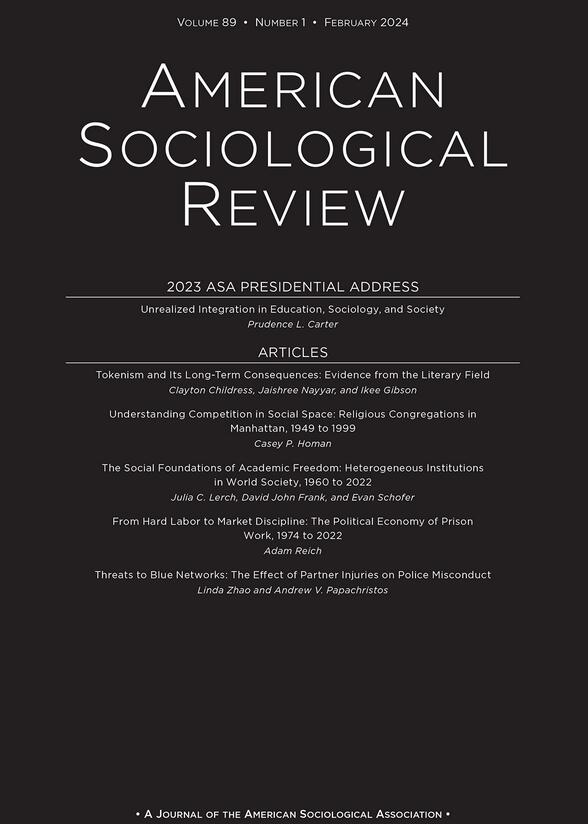谁算家人?标准如何使生活分层
IF 6.2
1区 社会学
Q1 SOCIOLOGY
引用次数: 5
摘要
根据马克斯·韦伯(Max Weber)的观察,即国家对正式工具的依赖导致一些人的治理,而另一些人的非人性化,我们将行政标准作为一种社会分层机制进行研究,这种机制将人们分类并分配象征和财政资源。具体来说,我们研究了在一个家庭多样性增加的时代,国家在临终时使用的家庭标准是如何使某些人失去亲属资格的。基于有关政府实施家庭标准以识别近亲并委托他们处理尸体的民族志和文献数据,我们发现家庭标准的使用导致三种结果:标准与家庭形式之间的正式契合;在谁被指定为近亲与谁愿意处理尸体之间的正式不匹配,导致尸体无人认领;还有一个正式的改造,在那里,没有被正式指定为近亲的人克服了正式的处理障碍。我们的分析提供了一个概念性框架来研究行政标准是如何包括和排除社会群体中的人的。这些官僚工具为一些人创造了一种特定于标准的可治理的生活,并为非标准化的人带来了从不承认到机会主义的各种对立影响。本文章由计算机程序翻译,如有差异,请以英文原文为准。
Who Counts as Family? How Standards Stratify Lives
Building on Max Weber’s observation that the state’s reliance on formal tools leads to governance for some and dehumanization for others, we investigate administrative standards as a social mechanism of stratification that sorts people into categories and allocates symbolic and financial resources. Specifically, we examine how at a time of increased family diversity, the state’s use of family standards at the end-of-life discounts certain people as kin. Based on ethnographic and documentary data about government’s implementation of family standards to identify next-of-kin and task them with the disposition of dead bodies, we find that the use of family standards leads to three outcomes: a formal fit between standard and family forms; a formal misfit between who is designated next-of-kin and who is willing to handle disposition, leading to bodies going unclaimed; and a formal refit, where people not officially designated as next-of-kin overcome formal barriers to disposition. Our analysis offers a conceptual framework to examine how administrative standards include and exclude people from social groups. These bureaucratic tools produce a standard-specific governable life for some, and a diverse range of oppositional effects varying from non-recognition to opportunism for the non-standardized.
求助全文
通过发布文献求助,成功后即可免费获取论文全文。
去求助
来源期刊

American Sociological Review
SOCIOLOGY-
CiteScore
13.30
自引率
3.30%
发文量
35
期刊介绍:
The American Sociological Association (ASA) is a non-profit membership association established in 1905. Its mission is to advance sociology as a scientific discipline and profession that serves the public good. ASA is comprised of approximately 12,000 members including faculty members, researchers, practitioners, and students in the field of sociology. Roughly 20% of the members work in government, business, or non-profit organizations.
One of ASA's primary endeavors is the publication and dissemination of important sociological research. To this end, they founded the American Sociological Review (ASR) in 1936. ASR is the flagship journal of the association and publishes original works that are of general interest and contribute to the advancement of sociology. The journal seeks to publish new theoretical developments, research results that enhance our understanding of fundamental social processes, and significant methodological innovations. ASR welcomes submissions from all areas of sociology, placing an emphasis on exceptional quality.
Aside from ASR, ASA also publishes 14 professional journals and magazines. Additionally, they organize an annual meeting that attracts over 6,000 participants. ASA's membership consists of scholars, professionals, and students dedicated to the study and application of sociology in various domains of society.
 求助内容:
求助内容: 应助结果提醒方式:
应助结果提醒方式:


